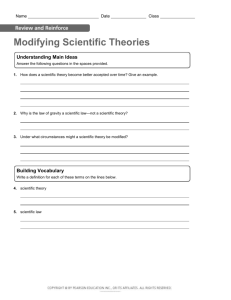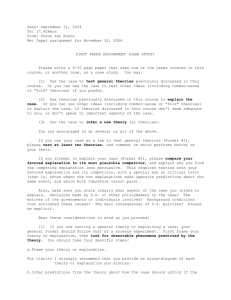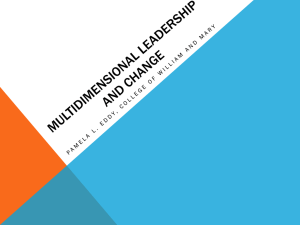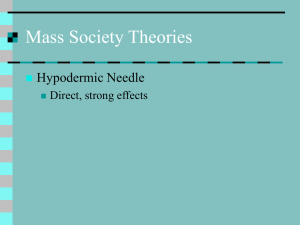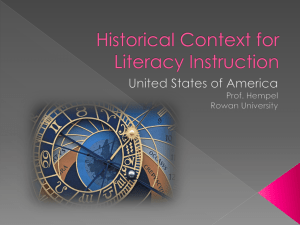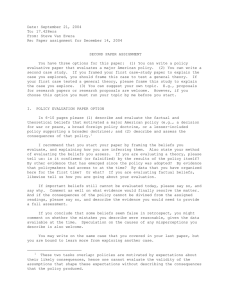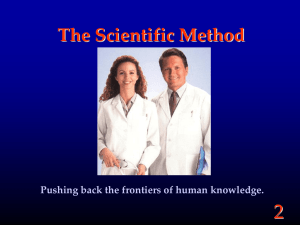The definition of “fact” is something that is demonstrably true or real
advertisement
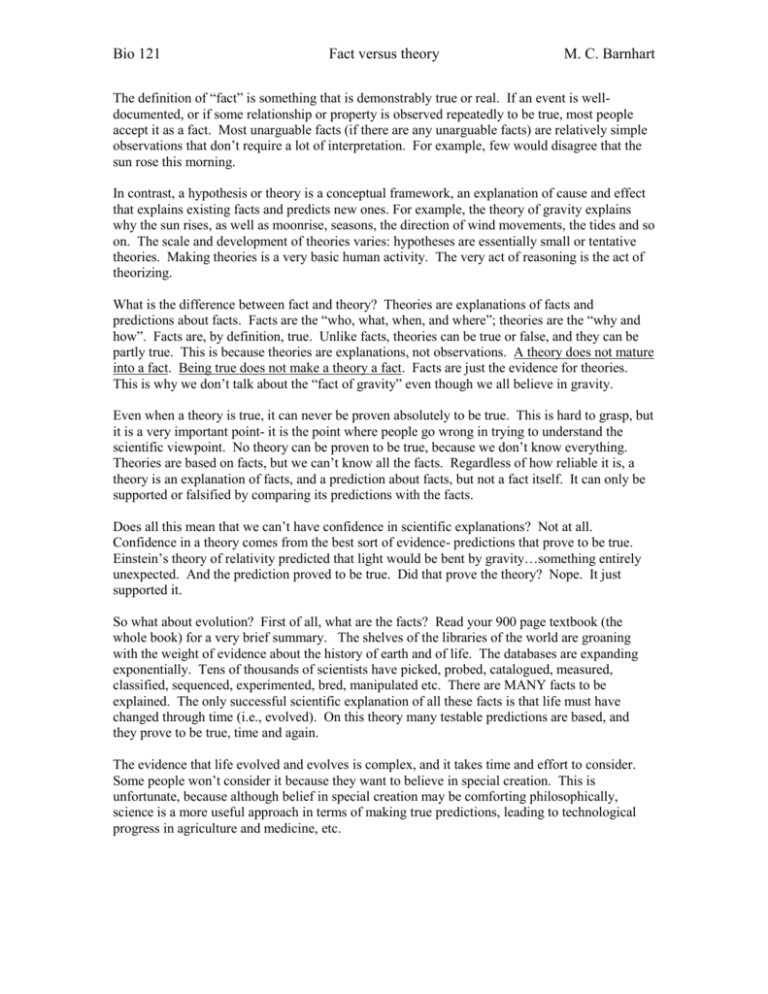
Bio 121 Fact versus theory M. C. Barnhart The definition of “fact” is something that is demonstrably true or real. If an event is welldocumented, or if some relationship or property is observed repeatedly to be true, most people accept it as a fact. Most unarguable facts (if there are any unarguable facts) are relatively simple observations that don’t require a lot of interpretation. For example, few would disagree that the sun rose this morning. In contrast, a hypothesis or theory is a conceptual framework, an explanation of cause and effect that explains existing facts and predicts new ones. For example, the theory of gravity explains why the sun rises, as well as moonrise, seasons, the direction of wind movements, the tides and so on. The scale and development of theories varies: hypotheses are essentially small or tentative theories. Making theories is a very basic human activity. The very act of reasoning is the act of theorizing. What is the difference between fact and theory? Theories are explanations of facts and predictions about facts. Facts are the “who, what, when, and where”; theories are the “why and how”. Facts are, by definition, true. Unlike facts, theories can be true or false, and they can be partly true. This is because theories are explanations, not observations. A theory does not mature into a fact. Being true does not make a theory a fact. Facts are just the evidence for theories. This is why we don’t talk about the “fact of gravity” even though we all believe in gravity. Even when a theory is true, it can never be proven absolutely to be true. This is hard to grasp, but it is a very important point- it is the point where people go wrong in trying to understand the scientific viewpoint. No theory can be proven to be true, because we don’t know everything. Theories are based on facts, but we can’t know all the facts. Regardless of how reliable it is, a theory is an explanation of facts, and a prediction about facts, but not a fact itself. It can only be supported or falsified by comparing its predictions with the facts. Does all this mean that we can’t have confidence in scientific explanations? Not at all. Confidence in a theory comes from the best sort of evidence- predictions that prove to be true. Einstein’s theory of relativity predicted that light would be bent by gravity…something entirely unexpected. And the prediction proved to be true. Did that prove the theory? Nope. It just supported it. So what about evolution? First of all, what are the facts? Read your 900 page textbook (the whole book) for a very brief summary. The shelves of the libraries of the world are groaning with the weight of evidence about the history of earth and of life. The databases are expanding exponentially. Tens of thousands of scientists have picked, probed, catalogued, measured, classified, sequenced, experimented, bred, manipulated etc. There are MANY facts to be explained. The only successful scientific explanation of all these facts is that life must have changed through time (i.e., evolved). On this theory many testable predictions are based, and they prove to be true, time and again. The evidence that life evolved and evolves is complex, and it takes time and effort to consider. Some people won’t consider it because they want to believe in special creation. This is unfortunate, because although belief in special creation may be comforting philosophically, science is a more useful approach in terms of making true predictions, leading to technological progress in agriculture and medicine, etc.
